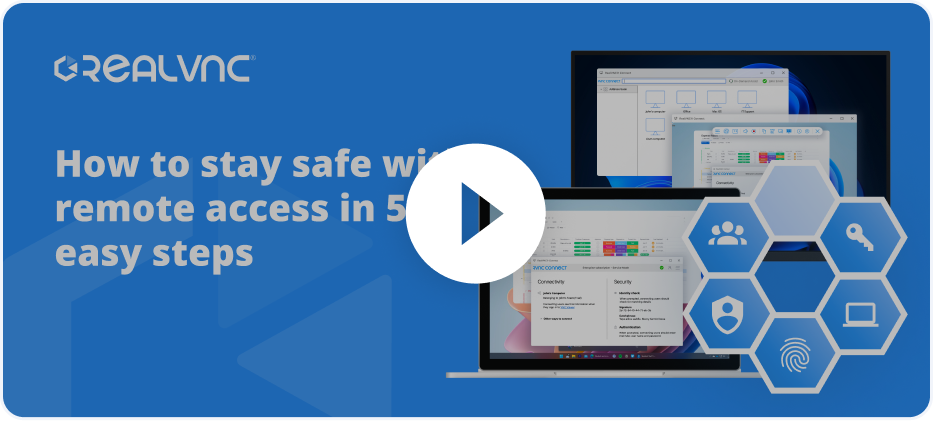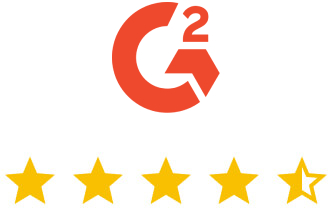This flexibility can offer reduced levels of stress, higher levels of productivity, and improvements in the overall wellbeing of an employee. However, one of the most common sentiments expressed by people working remotely is that they feel guilty for doing so, while also feeling concerned that office-bound colleagues don’t think they work as hard as them. In a recent survey, 62% of respondents felt they were not perceived as hard-working when they weren’t in the office.
In this post, we’ll give you a few tips to help you feel guilt-free about working remotely, and supercharge your performance!
Stay productive
Keeping your productivity up to the max can be a challenge when you’re not in an office surrounded by focused colleagues. In an office environment, it can be easier to minimize distractions, because visibility makes accountability come easier (in other words, if you click over to Facebook, people can see you).
When working remotely, you’re often alone, so nobody will know if you take a quick social media break to scroll through the latest pictures of an acquaintance’s new kitten, but before you know it it’s 2 hours later and you’re looking at their second cousin’s 2016 trip to Hawaii.
To keep yourself focused and productive, try to find a schedule that works for you. Set a timer, schedule ‘focus blocks’ to get your head down, break up your day with short breaks away from the computer – not everyone will be able to work in the same way, and what works for others might not work for you. There are some great tips in this remote work lessons article about maintaining your productive output throughout the day when you’re not in the office, along with some other insights about remote work dynamics.
A benefit of working remotely is the freedom to take breaks when you need them, not when the company clock says you can. Using short breaks effectively can not only help maintain your productivity but can contribute to your overall wellness too.
Use the right tools for the job
If you’re using the wrong tools, any job is immediately more difficult, and remote working is no different. Maybe you’ve already got yourself set up with a word processor and your emails and that works for you, but most of the time something can be improved.
Tools providing features like teleconferencing, remote access, and real-time collaboration can make your workday easier and more productive – once you’re used to using the new software, you’ll wonder how you ever did work without it.
Teleconferencing is not only useful to conduct meetings and show off your work, but also provides a connection to keep remote workers from feeling isolated and out of the loop. In contrast to the classic conference call, with people talking over one another and half the attendees barely audible, video conferencing can give the personal connection so often missing in remote work. Also, being able to see who you’re talking to helps you to pick up on body language and other cues – it’s impossible to get these signals over the phone or via email, which can lead to misunderstandings and can create undue tension.
Remote access software such as VNC Connect and remote work go hand in hand, which is probably obvious from the ‘remote’ in the names. Being able to access your office PC from anywhere in the world gives you the freedom to work from wherever you feel most comfortable and to stay connected while on the road, knowing that your files are safe on the central server. With remote access, no files from the PC being accessed are stored on the accessing device, unless intentionally transferred. So even if your device is lost, stolen, or destroyed, there is no way for anyone to access your work files.
Real-time collaboration can be a lot of things, some more useful than others. It can range from a brainstorming meeting to a group presentation, with many things in between. Having access to view and change data simultaneously with other people in real-time could change the way you work for the better, reducing the time to complete projects and gain approvals.
Want to try a remote access solution for free? Start a trial of VNC Connect
The stats are behind you
If you are a remote worker struggling to balance effort and productivity while being away from the office, know that you are in good company.
Flexible working is rising in popularity year by year, especially during the global Covid-19 pandemic, and all signs point to the practice remaining mainstream once things get back to normal, such as a steady jump in remote working job adverts.
Make the most of your time
One of the most appealing things about flexible working is, well, the flexibility! Although many companies will ask for core hours for you to be available, the rest is up to you. You can break up your day with different activities – go for a walk, check out the new indie café for lunch, or meet a friend for a coffee break. The possibilities are so much broader when you aren’t constrained by an office – as long as you’re available when needed, you can catch that mid-afternoon yoga class! It’ll be less busy too, with less chance of a foot in the face during downward dog (although we can’t guarantee that!).
Making lists can also help with making the most of your time – this ties in with staying productive too. Starting out each day with an itemized list of all the tasks you need to do, and crossing them off as you complete them can remind you that you have achieved something, and are being productive, but also that you are making the most of the time you’re working.
A fully ticked list is a sight to behold, but make sure you aren’t staying up all night to get that last checkmark done, unless it’s truly urgent – there’s always tomorrow, so remember to still switch off! As long as you are meeting deadlines and keeping up your performance standard, there is no reason for you to work overtime, because you have nothing to make up for – think “If I was in the office, would I still be at my desk working on this project?”. If the answer is no, it’s time to log off and focus on yourself.
Networking
A downside to working remotely can be a feeling of isolation, and missing the ‘water cooler’ conversations common in office life. This can be combated with collaboration technologies such video conferencing tools, team chats and the like, but it can’t completely replace the feeling of a real-life conversation.
Try looking for groups on Meetup relevant to your industry and interests, and make a point of regularly attending once it’ll be safe to do so in the future. Renting a desk in a coworking space once in a while might also help you connect with other professionals, in addition to providing a change of scenery.
Feeling better?
Misconceptions about working from home being ‘lazy’ have plagued the remote worker since it became a possibility, and often this stems from those expressing it being unable to work remotely, at least not productively.
It’s a cliché, but don’t let others perceptions and thoughts get to you. As long as you are communicating effectively with your boss and the rest of your team, and YOU are producing the ‘goods’ to the same (if not higher) quality as those in the office, you have no reason to be concerned or to feel guilty about not being in the office on a daily basis. Have trust in yourself and your abilities – if you got the job in the first place and your performance reviews are more than satisfactory, there is little reason why doing it remotely would make you any less skilled and efficient. Unless you’re a doctor – you kind of need to be there for that!













